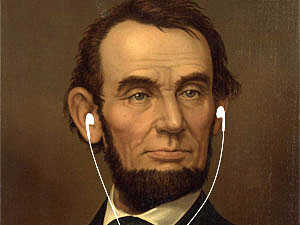

Living in the Present…Even in the Past
I know this is a fairly common refrain amongst many in my generation, but man, am I ever glad I came of age in an era that preceded the obscene proliferation of social media. I have, after all, done some seriously stupid shit over the years. But fortunately for me and my future vocational opportunities, none of it was ever caught on camera and subsequently posted on Instagram. As such, I can dwell in a world of plausible denial. A number of my current students actually read this column on the weekly (yes, I threw in that contemporary vernacular just for their benefit), and they have no idea that I once funneled pure vodka before a Colgate hockey game, only to then attend said hockey game clad in nothing other than a bright pink Speedo. Now they will certainly read this and question me rabidly about the particulars of this purported incident, but I shall deny all of it. If it wasn’t captured on film, it never happened. That’s because the past should be like a weekend in Vegas- whatever happened there should stay there. And that’s a lesson we could stand to remember as we fall into the glaring mistake of viewing the individuals of the past through the lens of the present.
Certainly the past several decades have seen some much-needed evolution in our values of acceptance and tolerance. Our understandings of race, gender, and sexuality have all progressed to a more enlightened sense of equality. When I was in high school in the 1980’s, I was doubtful that a black man would win the presidency during my lifetime or that a woman would win the popular vote shortly thereafter. I would have laughed at the notion that gay marriage would be considered a constitutional right during my lifetime. But fortunately, I was wrong about all of these things. We’ve come a long way, baby, and while we still have a ways to go, we should celebrate the advances we have made in social justice. Even our manner of speaking to or about diverse minority populations has evolved dramatically in recent years, as we recognize the sometimes subtle, sometimes overt power structures that have propped up discrimination throughout our nation’s history. But the problem comes when we take those evolved cultural expectations and apply them to figures of the past who were not privy to those same decades of societal progress.
“Presentism” is the concept of applying today’s social standards to the people and circumstances of the past, or, as James Sweet put it in his recent criticism of presentism, it is reading history “through the prism of contemporary social justice issues — race, gender, sexuality, nationalism, capitalism.” While identity politics are a vital source for acknowledging the complex power structures that buttress social injustice, we need to get out of the business of using the more enlightened perspectives of the present as a means for judgment of the past.
In the end, what this really comes down is a repulsive need for self-congratulation. “Look how good I am,” it says to the self and anyone else who cares to listen, “because I do not subscribe to the racism, homophobia, and gender discrimination that THOSE people did. Look at me, look at me.” But what this self-infatuation fails to address is that we are all products of the times we live in. Oh, you can go around telling yourself that YOU would have been different, that YOU would never have shared those cultural mores, but that form of self-aggrandizement not only flouts the basic principles of moral development, but holds oneself up as inherently superior, which ironically flies in the very face of equality itself in the first place.

Martin Luther King, Jr. was a womanizer and a misogynist. Abraham Lincoln is widely known as the emancipator of American slaves and led Frederick Douglas to exclaim, “I was impressed by his entire freedom from the popular prejudice against the colored race”, but Lincoln was known for using the N-word and telling racist jokes. Seeking to deflect accusations from political rival Stephen Douglas, Lincoln once told a crowd in Charleston, Illinois, “I am not nor ever have been in favor of making voters or jurors of negroes, nor of qualifying them to hold office…there is a physical difference between the white and black races which I believe will forever forbid the two races living together on terms of social and political equality.” Coco Chanel was a trailblazer for female entrepreneurs, but she was also a Nazi sympathizer. The list goes on and on.
All of us are byproducts of the times into which we were born. Yes, as individuals we can help push society forward and thus move the needle on important social issues in creating an equitable environment for all, but we are also subject to the cultural mores of the day. Holding historical figures to the identity politics and cultural values of the modern era strips from them the advancements they helped to procure and invalidates their noteworthy accomplishments and bravery in the face of prevailing societal bigotry, all so that we can pat ourselves on the back for having had the good fortune of being born in this time and place.
For my part, I too have evolved as a human being over my fifty-plus years on the planet. I once held views that were in line with the cultural zeitgeist, but over the years, I too have progressed towards a more enlightened understanding of race, gender, and sexuality. Fortunately for me, I did not have a column back in those caveman days and no one gave enough of a damn about anything I had to say to write it down. Which isn’t to say that I was a bad guy or a bigot. It’s just that no one, not even the greatest of our heroes, is capable of withstanding the kind of 20/20 hindsight scrutiny that presentism places on the past.
Steven Craig is the author of the best-selling novel WAITING FOR TODAY, as well as numerous published poems, short stories, and dramatic works. Read his blog TRUTH: In 1000 Words or Less every THURSDAY at www.waitingfortoday.com




